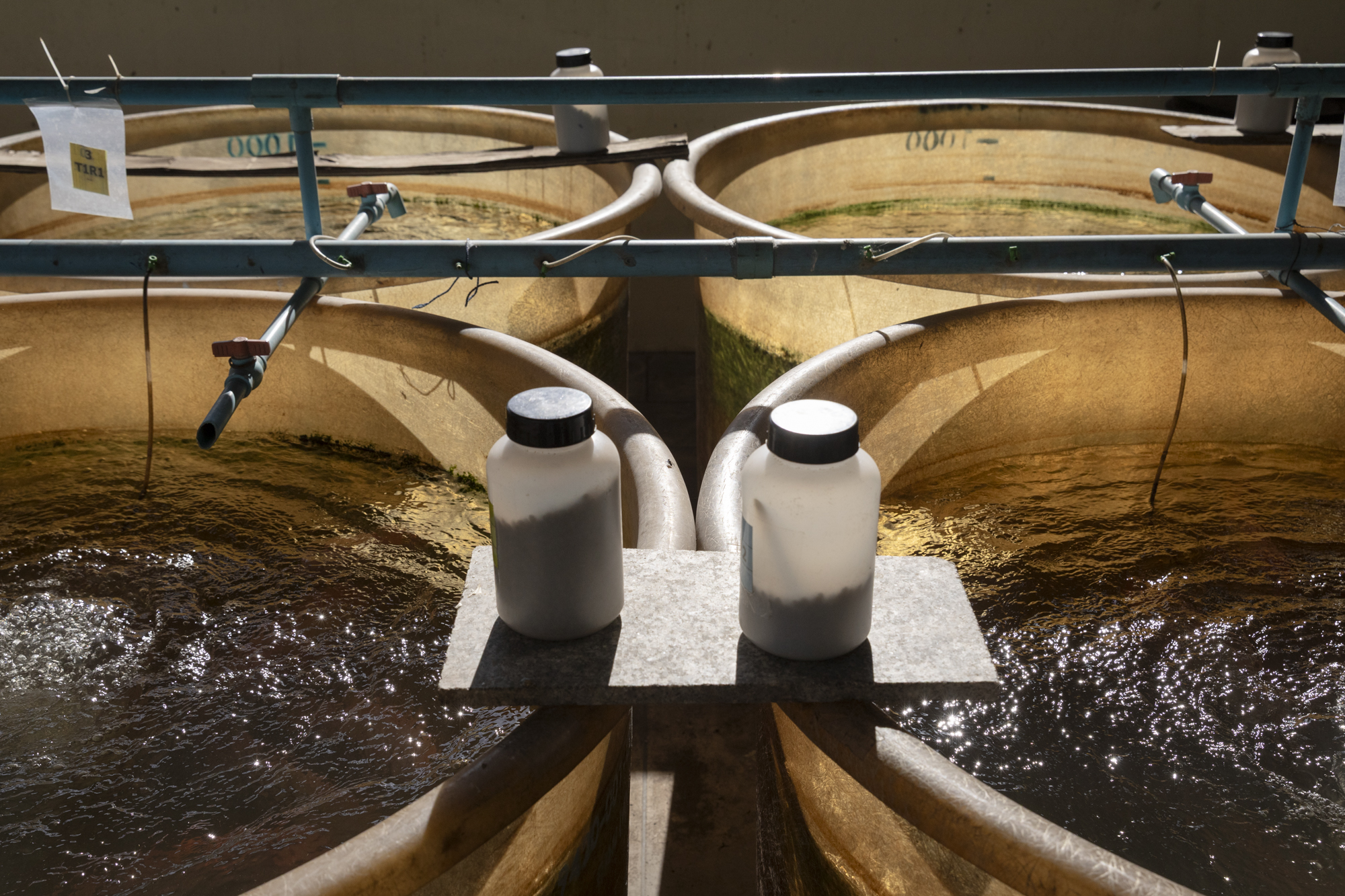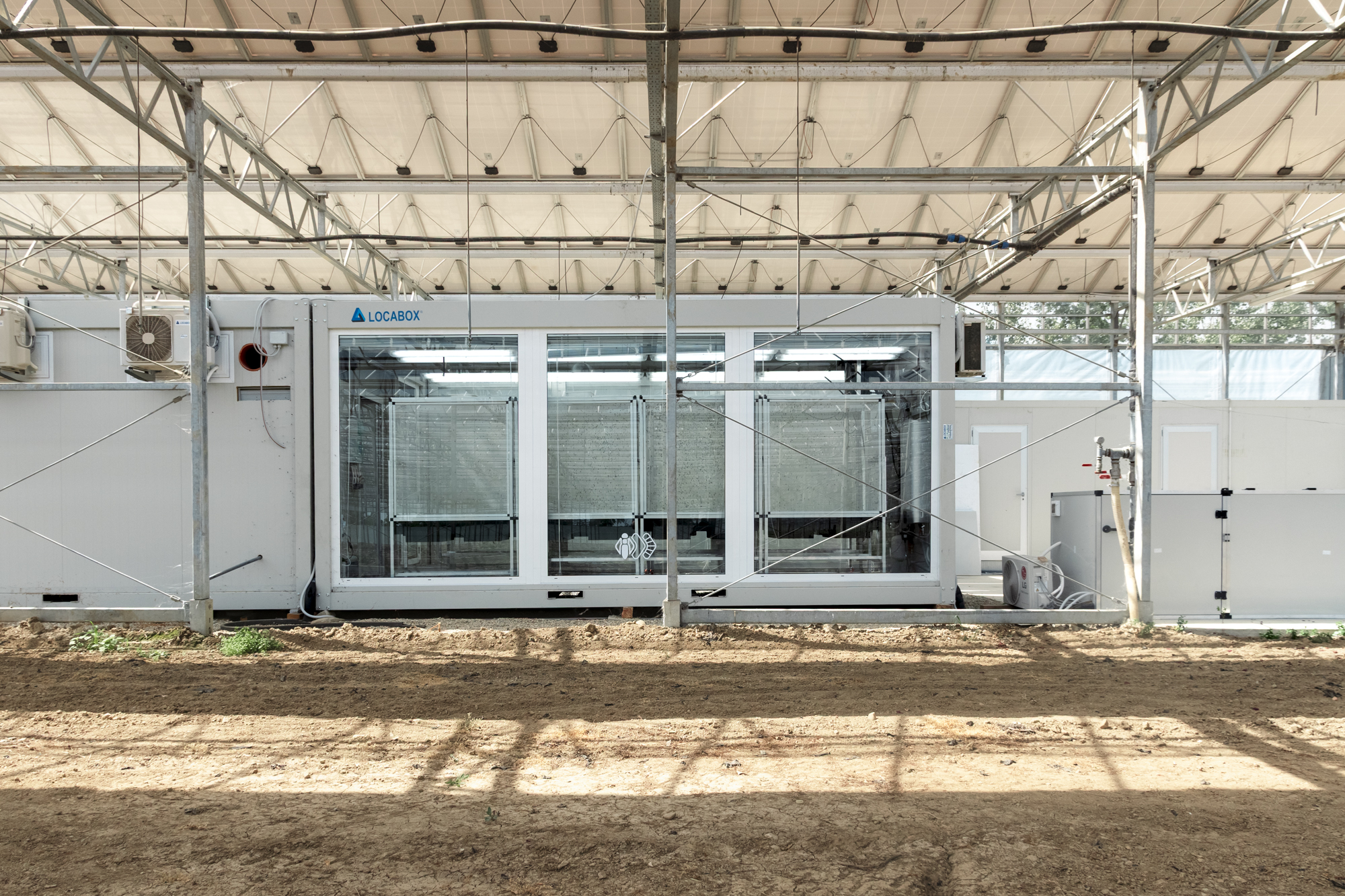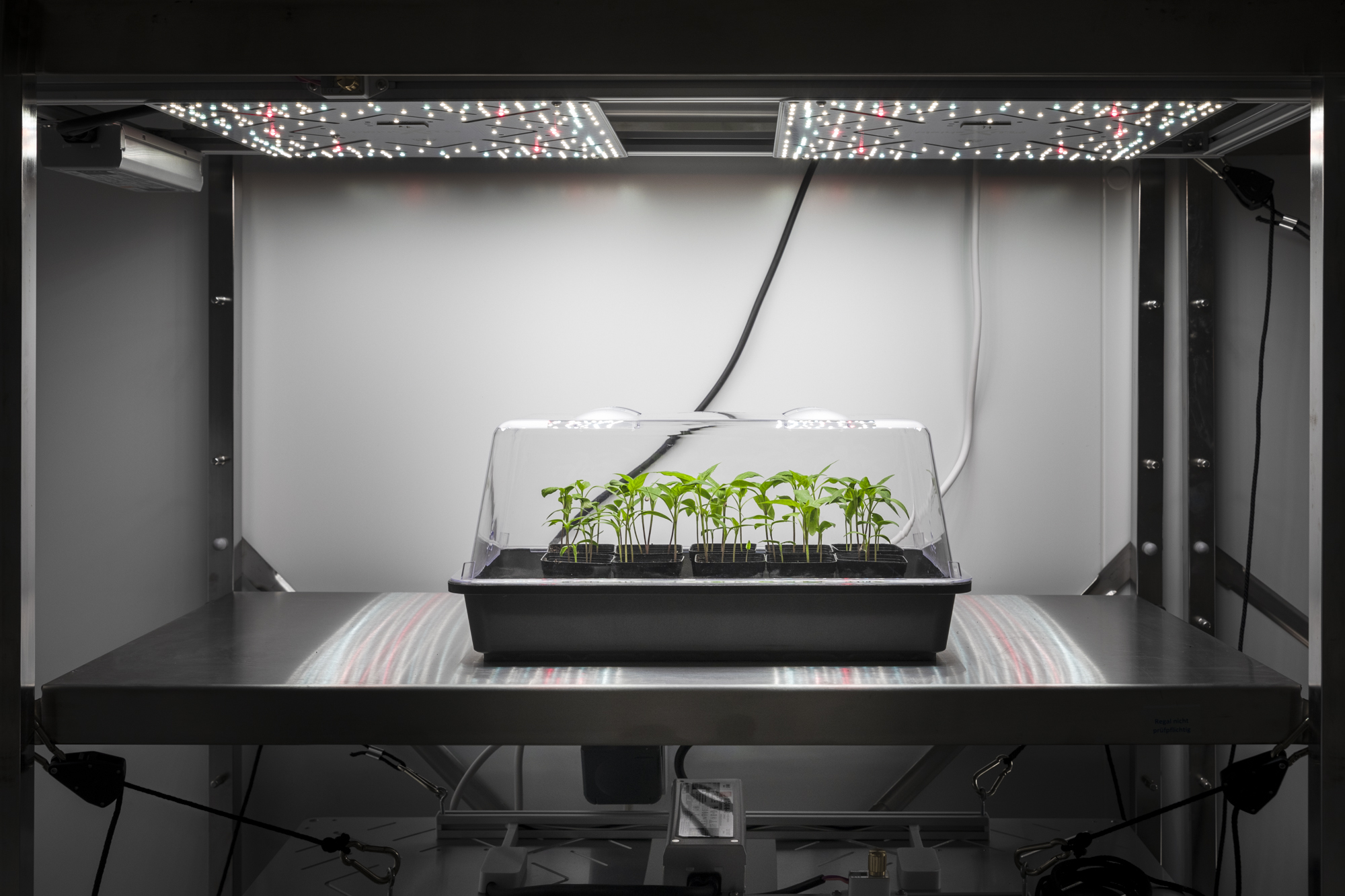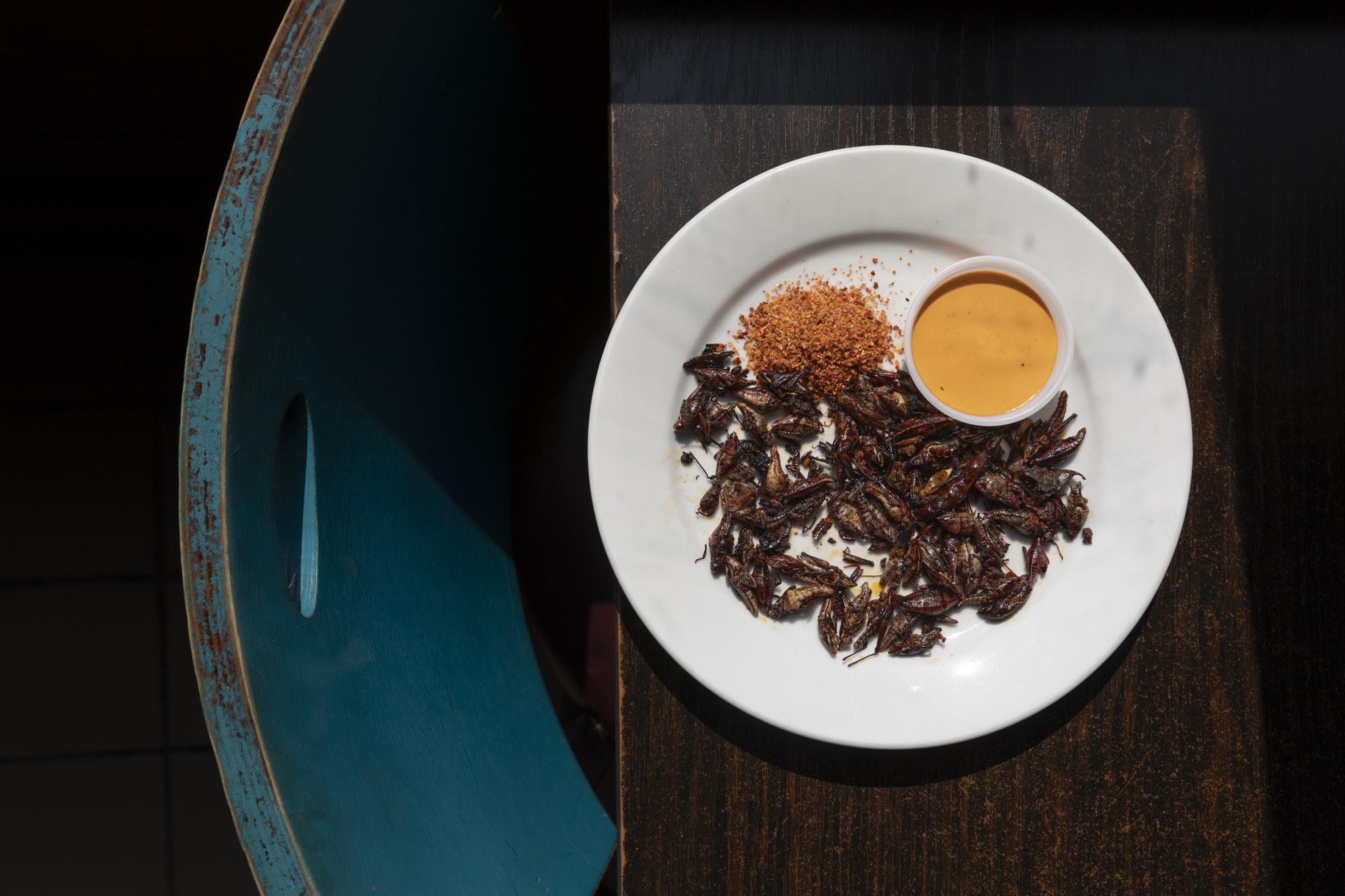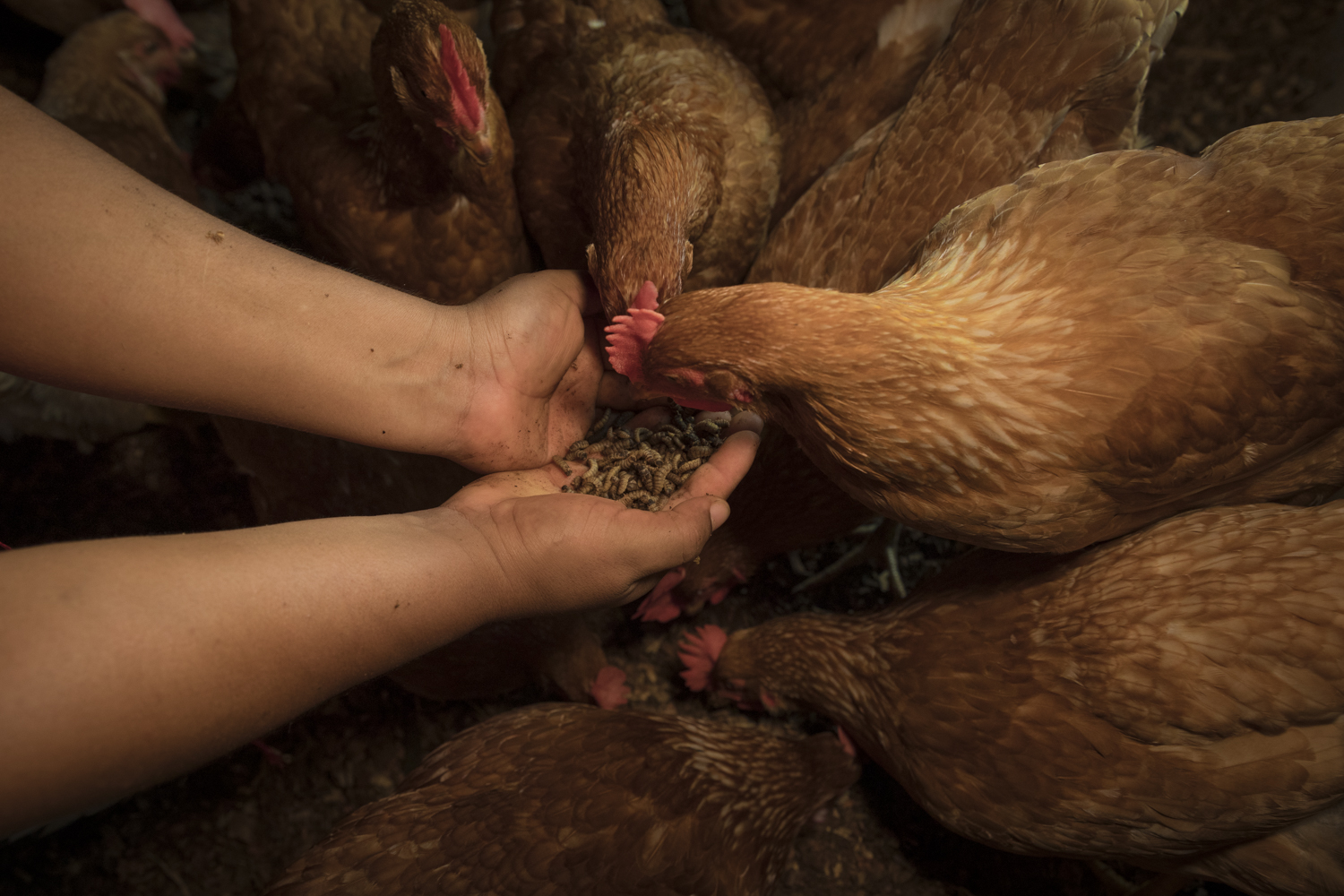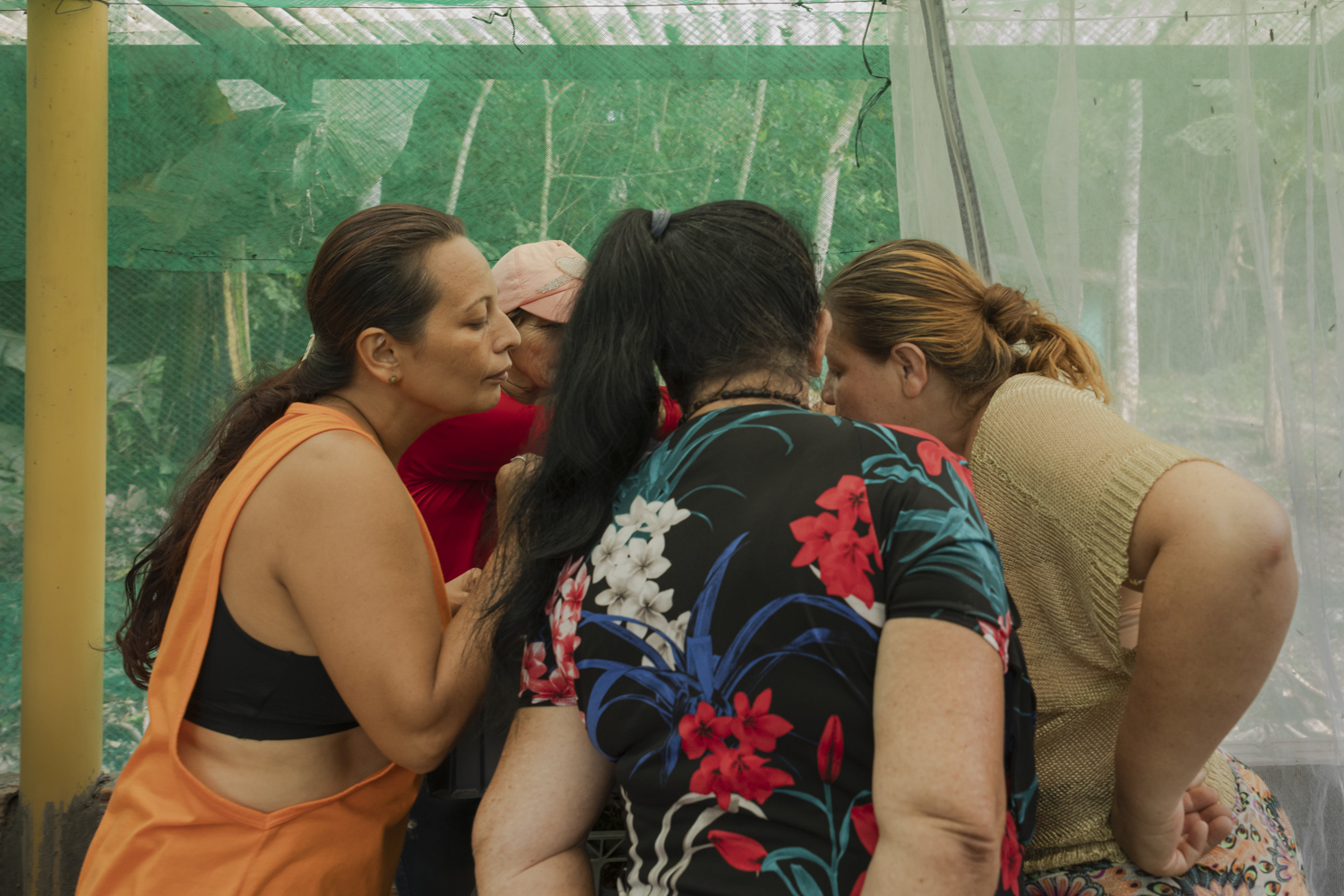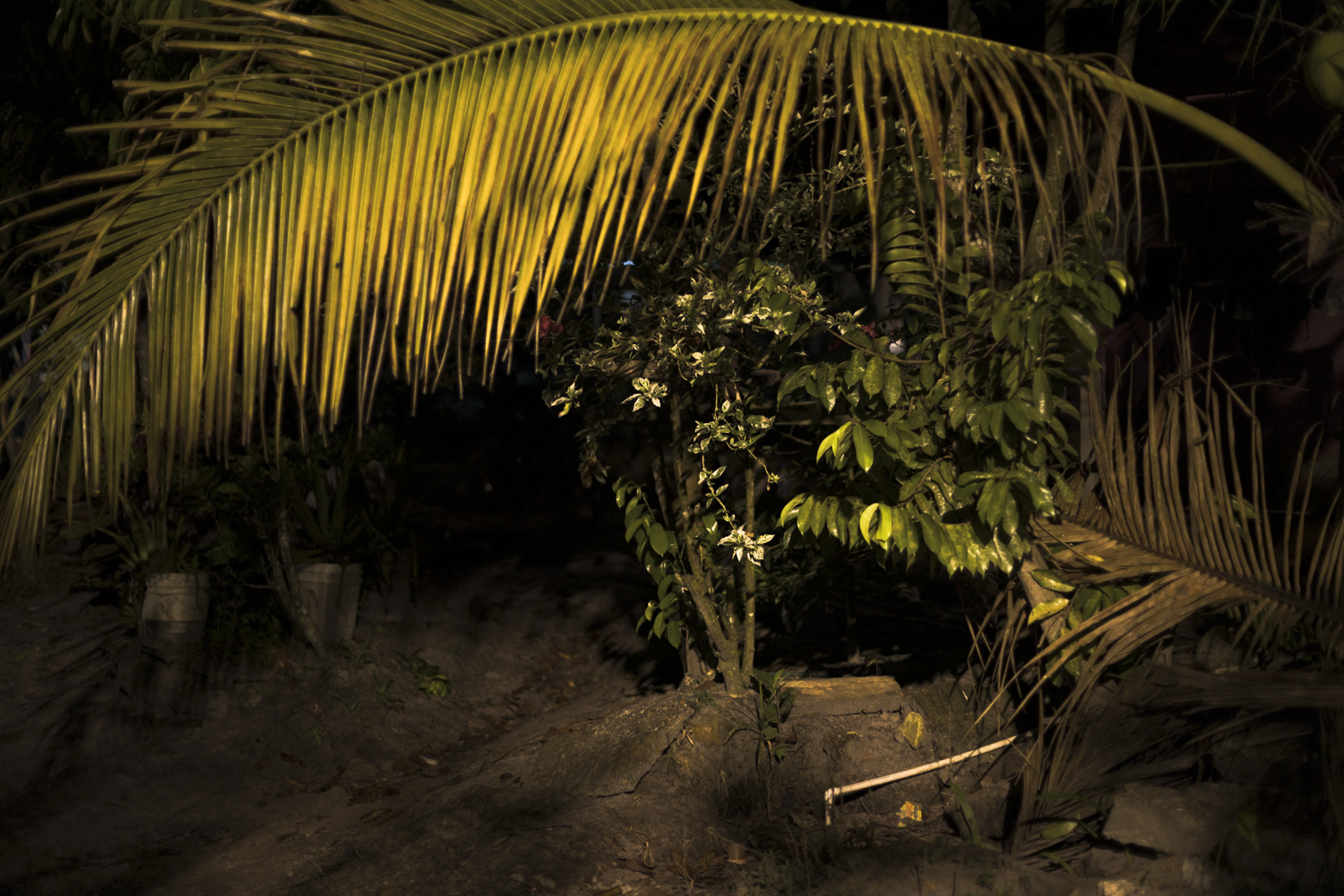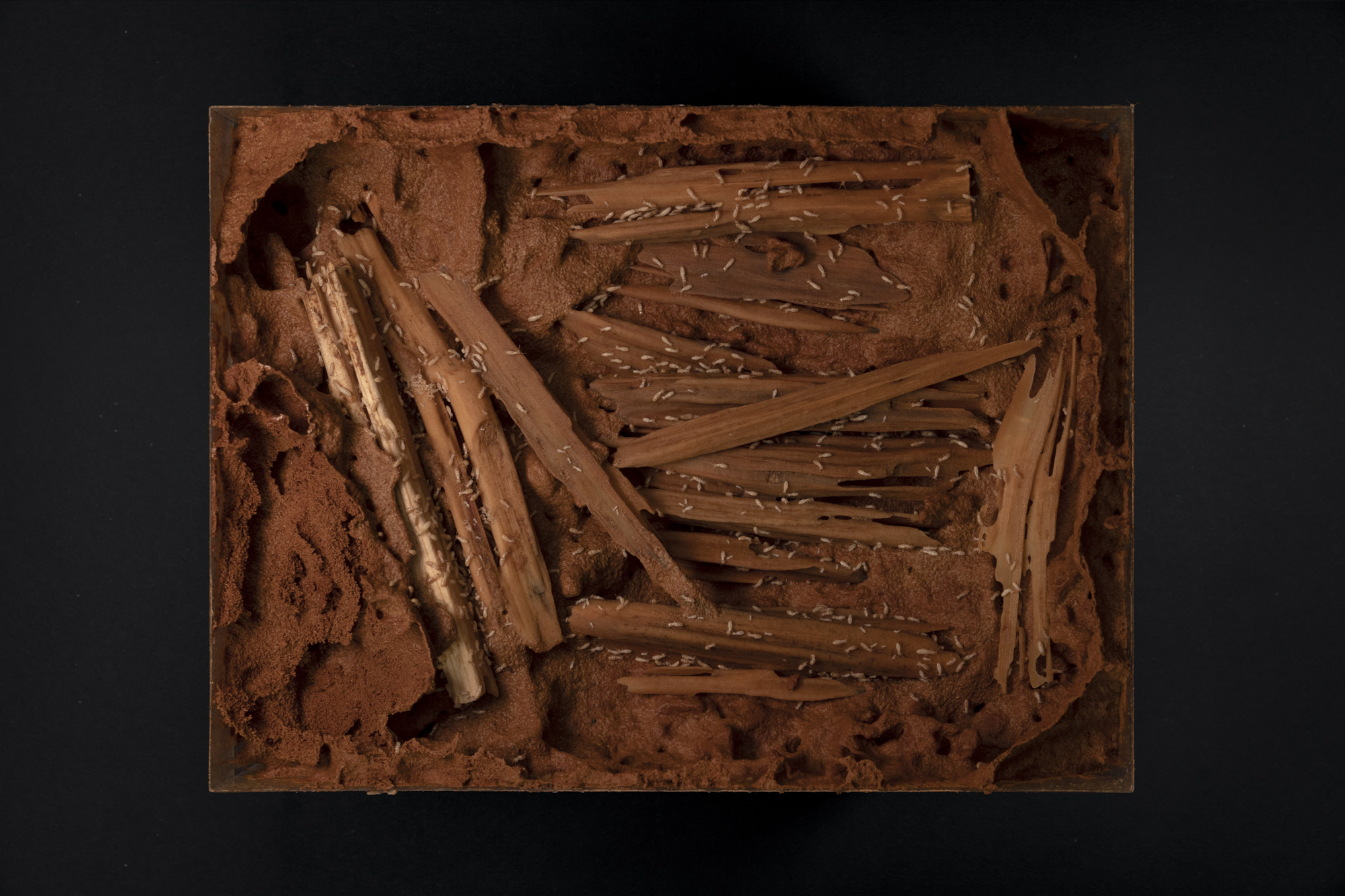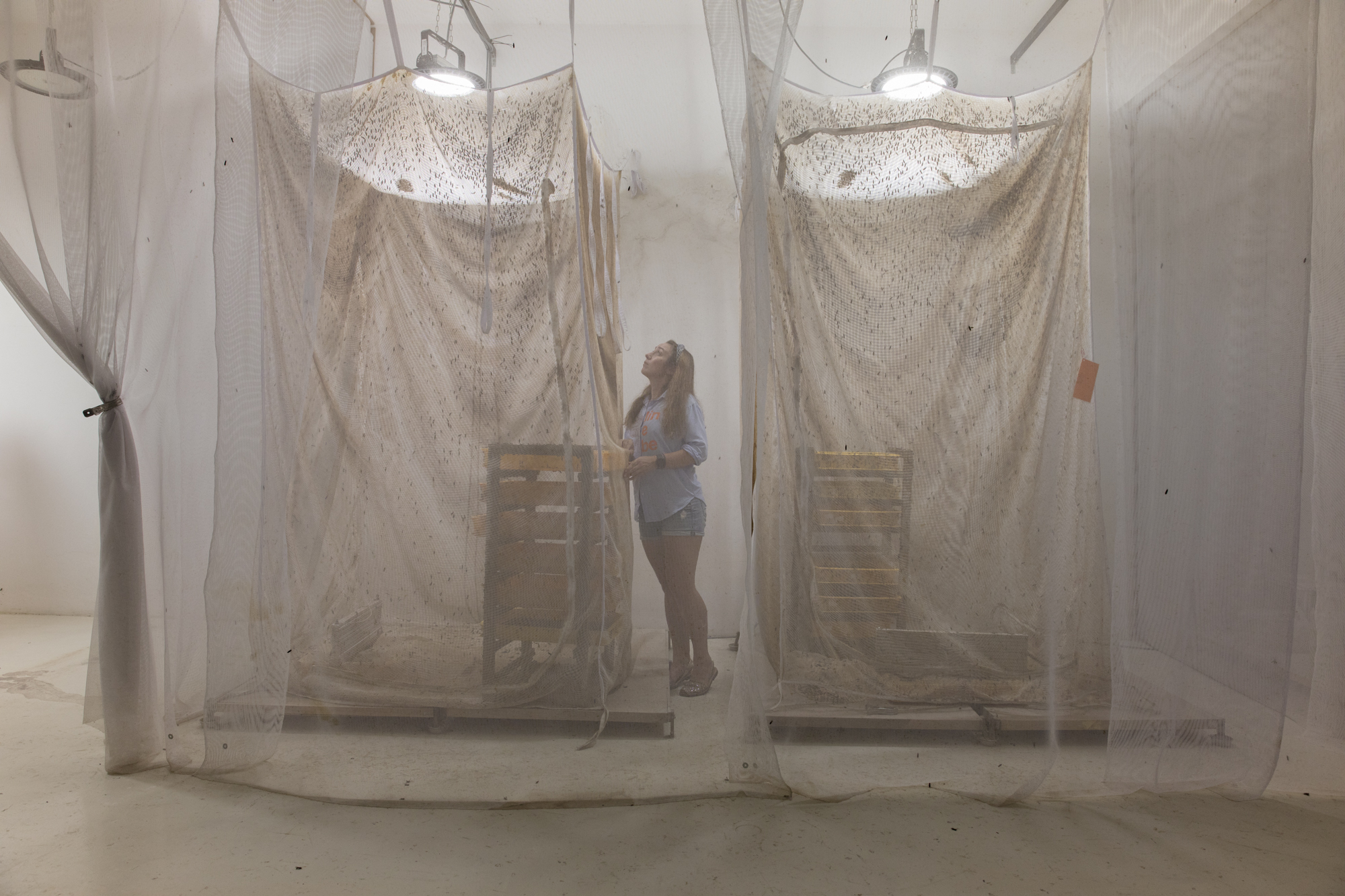I N S C T S
Some insects can be fed organic waste, bioconverting it into biofertilizers and feed for animals – such as chickens, or many freshwater fish – that eat insects in their natural diet.
Moreover the ideal conditions for insect farming occur in the tropics, offering rural communities in Africa, Asia, and Latin America an affordable way to alleviate poverty and a pathway to community sovereignty. The ongoing reframing process is also a decolonisation process, indispensable in response to the ever-growing population.
Striving for a global overview, the project focuses on both the people working towards change and those who would benefit from it. Farming insects could make smallholder farmers less dependent on expensive – and environmentally costly – imported products: a pathway to community sovereignty. Additionally in industrial contexts insect farming is an emerging sector handling the increasing amount of organic waste, with the potential to lessen the environmental impact of the agri-industrial sector.
The photographs were taken in research centers, farms, communities and companies in Europe (The Netherlands, France, Spain, Italy, Portugal), Colombia, Thailand, Malaysia and in the U.S. (California and Texas).
During the shoots, I also recorded audio interviews. Some of these conversations are published as a podcast with the title “Get The Bug” available on all major platforms. I speak with environmentalists, entomologists, entrepreneurs, anthropologists, and activists, including globally renowned experts, TED Talk speakers, and FAO collaborators.
All I N S C T S content references their research.

